.
#WiF Worldbuilding in Fantasy
Introduction:
My blogging theme for 2020 is Worldbuilding in
Fantasy, chiefly because I believe it's an essential element that all the differing subgenres have in common. Plus it's always been an aspect of speculative fiction that spins my writing and reading wheels. :-)
When it comes to this month's author, I feel she's a must-include. To be honest, I'm not sure it's even possible to pen a series on Fantasy worldbuilding without featuring Kate Elliott. Quite simply, the worlds are a wow factor in every one of her series that I've read.
---
The Many Worlds of Kate Elliott
 I'm going to start at my beginning, which was The King's Dragon, first published in 1997 around the same time as A Game Of Thrones (1996). I recall reading them back-to-back and loving both of them, with the worldbuilding a standout of the Kate Elliott novel for me.
I'm going to start at my beginning, which was The King's Dragon, first published in 1997 around the same time as A Game Of Thrones (1996). I recall reading them back-to-back and loving both of them, with the worldbuilding a standout of the Kate Elliott novel for me.
Along, that is, with Sanglant, the eponymous King's Dragon. Definitely an ooh-la-la encounter in the epic hero stakes... ;-)
I'm not sure if I've said this previously, but I really love history and historically informed Fantasy.Consequently, it's completely unsurprising that I love The King's Dragon's kingdoms of Wendar and Varre, in the continent of Novaria.
I believe these kingdoms are loosely based on the Holy Roman Empire in the age of Charlemagne, with an empire and civilization being forged out of the (relatively) chaotic era that followed the disintegration of the Roman Empire. In this respect, the descriptor "Holy" is accurate, as it was the Christian religion that provided the new cohesive structure for Charlemagne's kingdom.
Kate Elliott echoes this historical structure in Wendar and its adjoining kingdoms, so religion and religious structures are an important part of the worldbuilding. So, too, are the clerical civil service, but also the military structures that support the power of the King. In this world, though, magic is an important element in the power structures of both church and Court.
The worldbuilding also reflects the differences between the poor, chiefly rural peasantry, and the knightly/landholding classes, with the Church and the service of the King offering the main paths for advancement between the classes -- albeit only to an extent. And like Charlemagne's Dark Ages' empire, the kingdom of Wendar is beset by internal divisions and external enemies.
I guess you might be getting why I also think of Kate Elliott's storytelling as anthropological. Culture and context are always integral to the worldbuilding. Yet The King's Dragon (and the subsequent Crown Of Stars series) is still Fantasy with a capital F.Magic is integral to the society and its power structures, and also to the powers that threaten it. These include the nonhuman Eika raiders, the nomadic Quman, gryphons, and the Elf-like Ashioi, whose kingdom was banished into another sphere of space-time under cataclysmic circumstances, millenia before, but is now poised to return...
Two subsequent series, the Crossroads and Spiritwalker trilogies, are also excellent examples of Kate Elliott's anthropological worldbuilding crossing with fully fledged Fantasy.
"...this post-Roman Afro-Celtic icepunk alt-regency adventure fantasy, with Phoenician spies, shapeshifting saber-toothed cats, a handsome if icy cold mage, a woman who likes to eat, and of course lawyer dinosaurs."
Ya gotta love it, right? Right!
Recently, though, I read and loved Kate Elliott's YA trilogy, Court of Fives (which begins with the novel of the same name) --- and immediately loved the world because when it comes to historically-informed Fantasy, I (probably) love an archaic-Mediterranean world best of all.
The Court Of Fives world is (again loosely) reminiscent of ancient Eygpt, overlain with the later Ptolemaic empire of Alexander the Great's half-brother, Ptolemy, and his successors. So the city of Saryenia (think Alexandria) and surrounding realm of Efea, comprise two cultures and two 'worlds', one politically and physically imposed upon the other. The warfare that besets Efea is also consistent with the break-up of Alexander's massive empire following his death.
Best of all, though, this world has the Fives, a game of athletic and strategic skill based around a maze, which permeates every aspect of the culture. In this respect, I discerned echoes of the Minoan maze and the competitive games of the bullring.As with all Kate Elliott's worldbuilding, I love the attention to detail in food and clothing, religion, cultural practice, and the rituals of the Fives training and competitions, all of which bring the world to life. Again, she does not rely on history, but makes the culture of the world her own.
In particular, old Efea is a matriarchal cum matrilineal society and Efean women compete as equals in the Fives' Court. The magic of the world is drawn from the land and involves oracles, the reanimation of spirits, and the animation of mechanical "spiders" used for desert scouting and battle.
The heart of the world and the story is the Court of Fives and the adversaries that compete for the victor's crown – in particular the heroine, Jes, who is born of both Efea's cultures, and Kalliarkos, a charming and talented scion of the conquering power...
If you love Fantasy worldbuilding and haven't yet read Kate Elliott, I hope I have conveyed enough to whet your interest. And if you are already a fan – well, then, you won't need any reminder of just how fine a worldbuilder this author is. :-)
—
Previous Months:
February: The Lion, the Witch & the Wardrobe (Chronicles of Narnia) by CS LewisApril: Sparrow Hill Road by Seanan McGuire
May: Palimpsest by Catherynne M Valente
June: Ship of Magic & the Liveship Traders series by Robin Hobb
September: Dreamhunter, Dreamquake, Mortal Fire, by Elizabeth Knox
—
Helen Lowe's first novel, Thornspell (Knopf), was published to critical praise in 2008. The second,The Heir of Night (The Wall Of Night Series, Book One) won the Gemmell Morningstar Award 2012, and the sequel, The Gathering Of The Lost, was shortlisted for the Gemmell Legend Award in 2013. Daughter Of Blood (Book Three), was published in 2016 and Helen is currently completing the final novel in the series. She posts regularly on her “…on Anything, Really” blog, monthly on the Supernatural Underground, and tweets @helenl0we





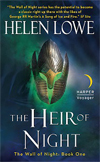
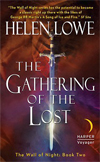
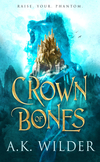
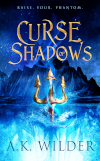
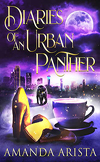
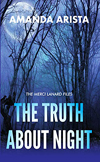

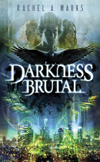
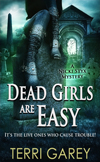
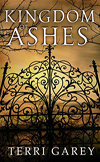
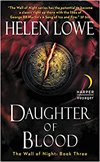
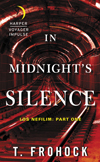
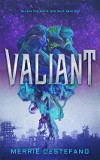
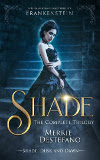

No comments:
Post a Comment